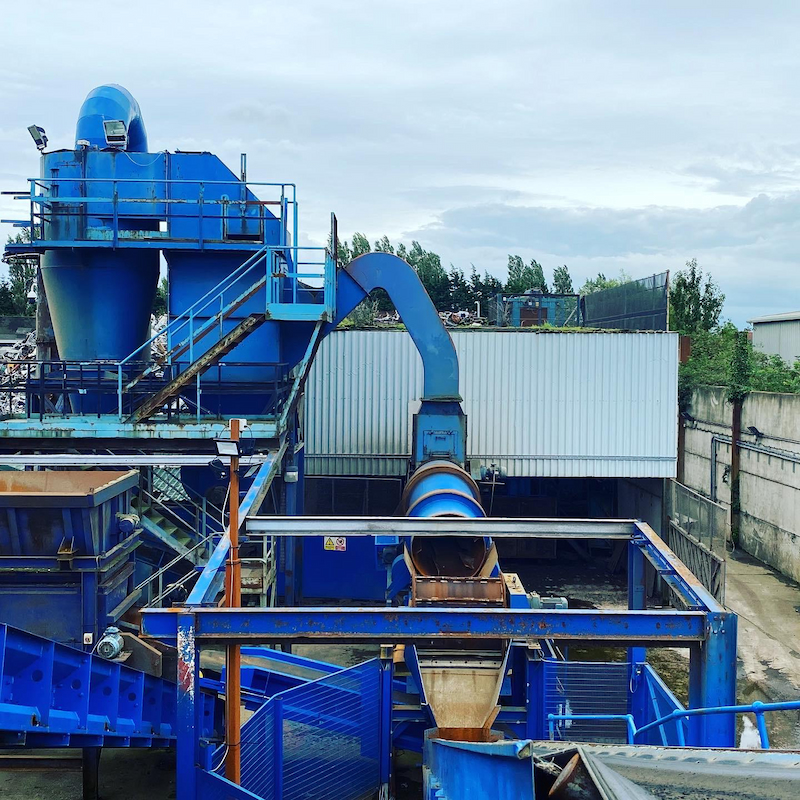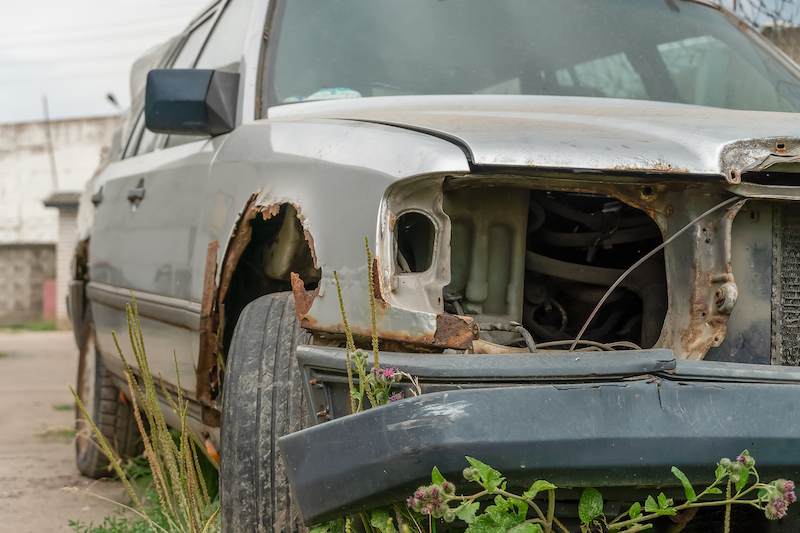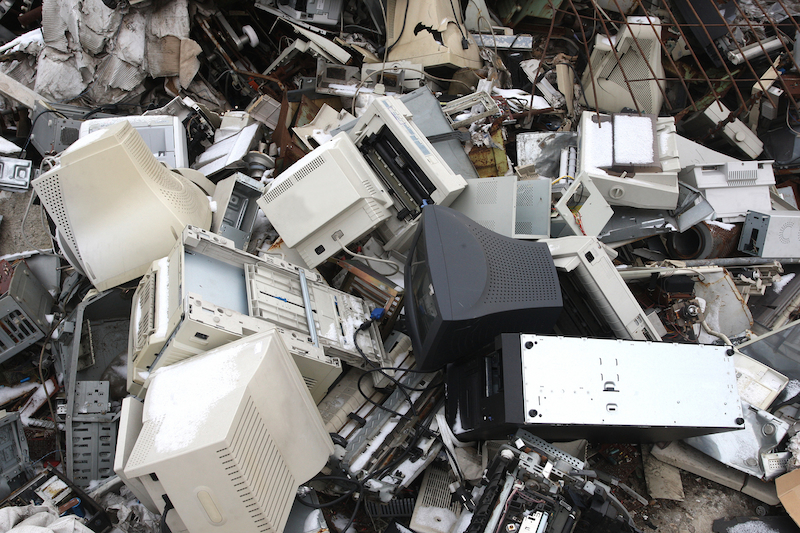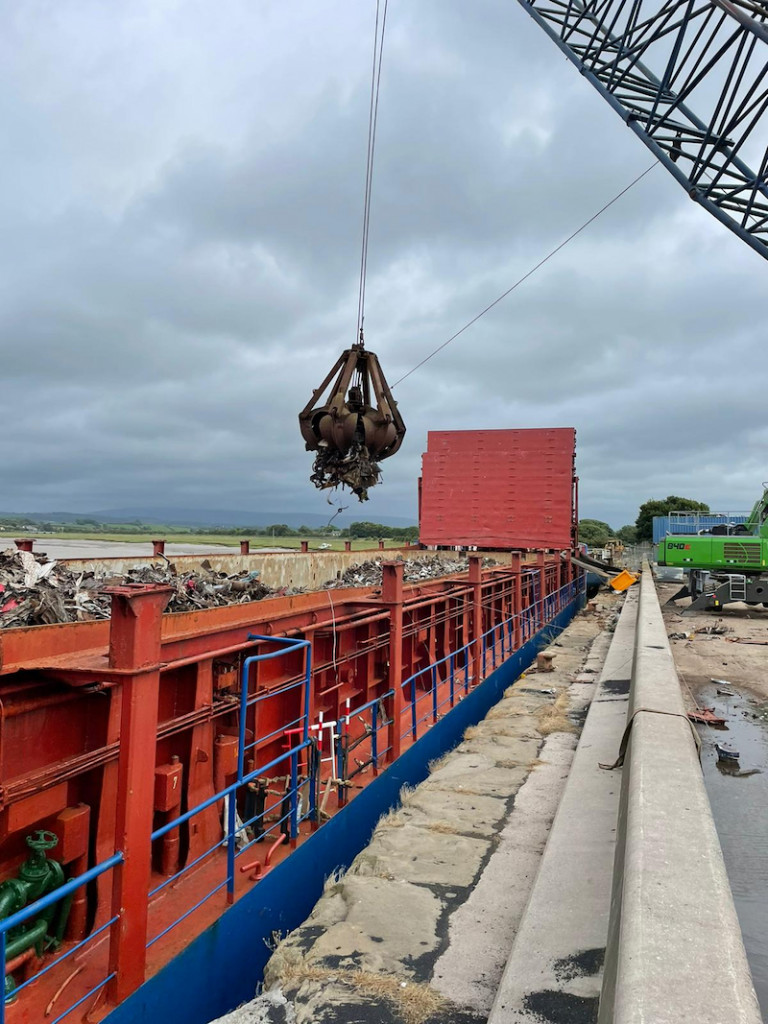The scrap metal industry has been our area of expertise for over 35 years. We specialise in the recycling of both ferrous and non-ferrous metals, this can vary from end of life vehicles to demolition scrap. Even though we have been in the business of scrap metal for a long time, we are no stranger to a challenge and the ability to solve problems when faced with them. The world is rapidly adapting, and as a business whose values lie heavily with sustainability in mind, we have learned to evolve with it.
Segregating Waste and The Lack of Awareness Over Segregation
Scrap metal can cause many issues for businesses; dismantling, disposal and ensuring the waste is recycled in the most economical way possible is the core mission of our company. At Morecambe Metals, we ensure waste is segregated in order for it to go on to be recycled successfully. Without segregation, mixed material often gets sent to landfill, where it reaches the end of its journey without being recycled. Recycling metal material takes 75% less energy than mining the raw materials, meaning that saving these mixed metals from landfill is worth the time, effort and certainly the environment. Our shredding process allows us to ensure that every valuable reusable material can be segregated from the non-reusable materials using magnets and our ECS.
Sorting and Separating Material Capabilities
Non-ferrous metals need separating from the ferrous metals and the contaminated from the non-contaminated. This process can be time-consuming, but with our Eddy Current Separator (ECS), we can ensure that the materials we recover can be organised and distributed to their designated processes. Our non-ferrous metal processing specialises in aluminium, copper, and lead. These materials are sent off for furnacing to be remade into tank linings, electrical equipment, and so much more.
Ferrous metal (such as carbon steel) is a little simpler to recycle than non-ferrous due to the metal’s melting points and magnetic properties, allowing for an easier process. Our ferrous metal processing allows us to recycle up to 2000 tonnes a week.
Unfortunately, some metals are unsuitable for recycling; contaminated waste is one of the biggest issues. Whilst we ensure to clean all our material, contaminated metals such as oil canisters, batteries, and products exposed to lead, asonic, or mercury often can’t be recycled. Therefore we also ensure the correct disposal policies for contaminated items are followed, and these are separated from the collections using our ECS.
The Increasing Amount of Complicated Electronic Waste
In this growing digital age, the complexity of various modern products means recycling is far more complex than it used to be. Cars, for example, with the newest technologies and digital components, end of life recycling can take much longer than it previously did. We ensure that every ELV is dismantled, recycled and reused, allowing us to claim a much higher environmentally friendly scrap metal recycling process than some of our competitors. Every nut, bolt and wire is dismantled and processed for further use.
Whilst the issue of electronic waste is not a new one, it is certainly a growing one, with more and more electronics being thrown away each year. Morecambe Metals is proud of its mission to ensure every item is dismantled and reused as effectively as possible
What To Do With Scrap Metal Once It’s Been Processed at a Scrap Metal Facility
From ELV recycling to factory dismantling, once processed, materials need to be sent to the place best positioned to turn the metal into new raw material for use in a range of applications. For example, stainless steel often gets remelted into new sheets of metal for use in a range of different items and industries. Its corrosion-resistant properties make it ideal for surgical use, cooking facilities, and even buildings.
Each year, 500,000,000 tonnes of steel is produced from recycled materials brought through scrap yards like ours. With such a vast amount of metal to process, it could easily build and mount up. So what happens once we’re finished with it?
At Morecambe Metals, we are conscious of our responsibility to the local area to ensure that our efforts do not go to waste. We aim to complete the recycling journey by sending the materials across the world to the best facilities capable of dealing with the metal, providing it with a new purpose. Much of our recyclable scrap metal is exported across the world to places such as Spain and China from our local port of Glasson Dock. Our ability to export the material has helped contribute to the revitalisation of the dock, providing local jobs and continuing to promote sustainability within the local area.
If you would like to learn more about our scrap metal solutions, feel free to contact us and see what we can do for you and how we overcome the challenges faced by our industry.





